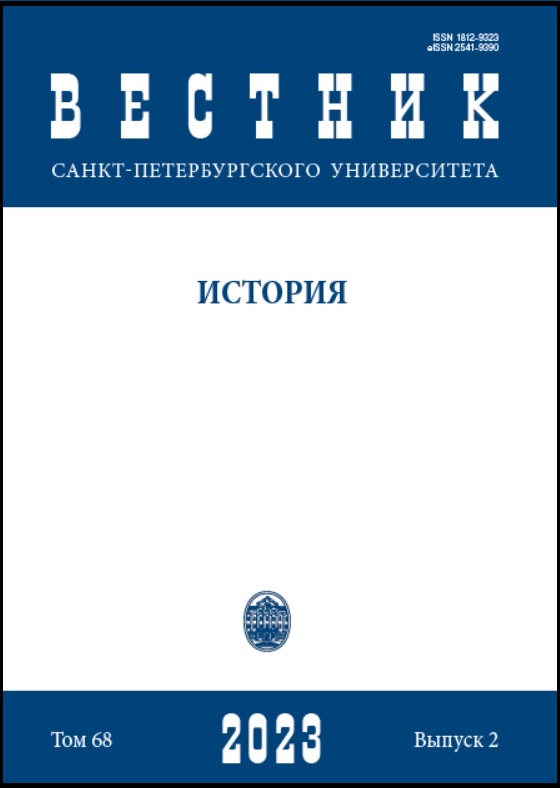Everyday Life of the Staff in Koltuban Filtration Camp
DOI:
https://doi.org/10.21638/spbu02.2023.205Abstract
The article examines the everyday life of the staff of Koltuban filtration camp. It operated from early 1942 to autumn 1943 in the west of the Chkalov (Orenburg) region. Its task was to filter Soviet soldiers who returned from captivity or who had been in the occupied territory. The article describes the identity of the camp commanders, the sources of recruitment of ordinary employees, their number, educational levels and gender composition. In many respects, the camp staff were close to inmates: forced mobilization for service, harsh material conditions, the desire to go to the front. Strict discipline was maintained among minor staff members, but large-scale theft and embezzlement was regularly carried out mainly by middle-ranking management. Everyday contacts between the guards and inmates primarily centred around trade and barter. Cases of aggression and cruelty are not reflected in the documents, neither are close contacts between the staff and the inmates. This article pays special attention to the tensions among the camp administration due to the uncertain status of the filtration camps. The special department not only maintained its independence in filtration but also claimed to play the main role in the management of the entire camp. The prosecutor sought to go beyond the boundaries of his functions. The commissar wanted to solve all issues on an equal footing with the head of the camp and make changes to the regime for inmates, which would turn the filtration camp into a kind of reserve military unit.
Keywords:
World War II, Soviet POWs, NKVD, Smersh, filtration, prosecutor’s office, commissar, staff, corruption
Downloads
References
Downloads
Published
How to Cite
Issue
Section
License
Articles of "Vestnik of Saint Petersburg University. History" are open access distributed under the terms of the License Agreement with Saint Petersburg State University, which permits to the authors unrestricted distribution and self-archiving free of charge.





